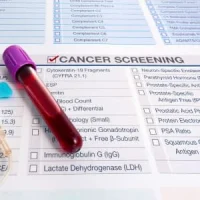The U.S. Preventive Services Task Force (USPSTF) recently reviewed the evidence and effectiveness of breast cancer screening. They recommend that all women begin screening for breast cancer at age 40 and screen every other year until age 74.
In 2016 the task force recommended that biennial mammograms start at age 50 and the decision for women to begin screening in their 40s is an individual one.
Women with dense breasts and those with a family history of cancer should begin at age 40. However, women considered to be at high risk, i.e. those who have a personal history of breast cancer or a family history of a genetic mutation should not fall into this category. Instead, they should follow the screening practices that have been recommended to them by their physicians.
Black women are 40% more likely to die from breast cancer. The task force acknowledges this inequity and calls for further investigation into the racial inequities in breast cancer. They hope to determine what can be done to eliminate this health disparity.
USPSTF Vice Chair Dr. Wanda Nicholson, said, ““Screening alone is not enough. Once someone screens with an abnormal mammogram, the subsequent steps in care must occur – timely follow-up, biopsies that are indicated – and Black women must have access to equitable treatment”.
The draft recommendation found that screening with mammograms every other year provides a moderate benefit to women ages 40 to 74. However, the evidence remains insufficient as to whether it is more beneficial for women 74 and older to undergo screening.
Unfortunately, each year the rate of breast cancer diagnoses has been increasing among women at younger ages. To help better understand the rise in cases in younger ages, the task force will be exploring the potential causes and mechanisms that may be contributing to breast cancer development in all women.
The USPSTF recommendations are for women at average risk. Whereas women with a higher risk for breast cancer should consult with their doctor to find out what screening practice would be the best for them. The change in guidelines is a response to real world data; it is hoped that these recommendations will guide decisions and influence plans to provide better coverage for women.
Source: CNN News
Image Credit: iStock










